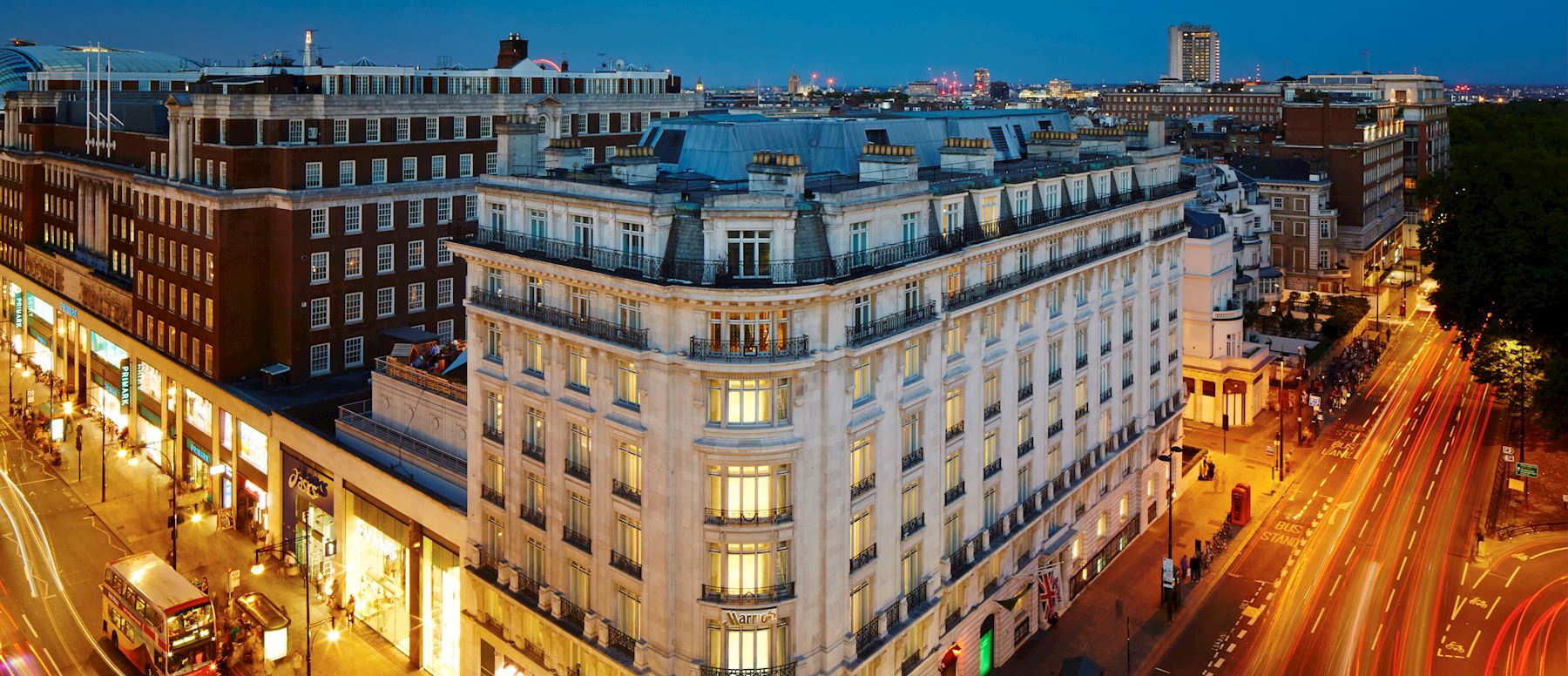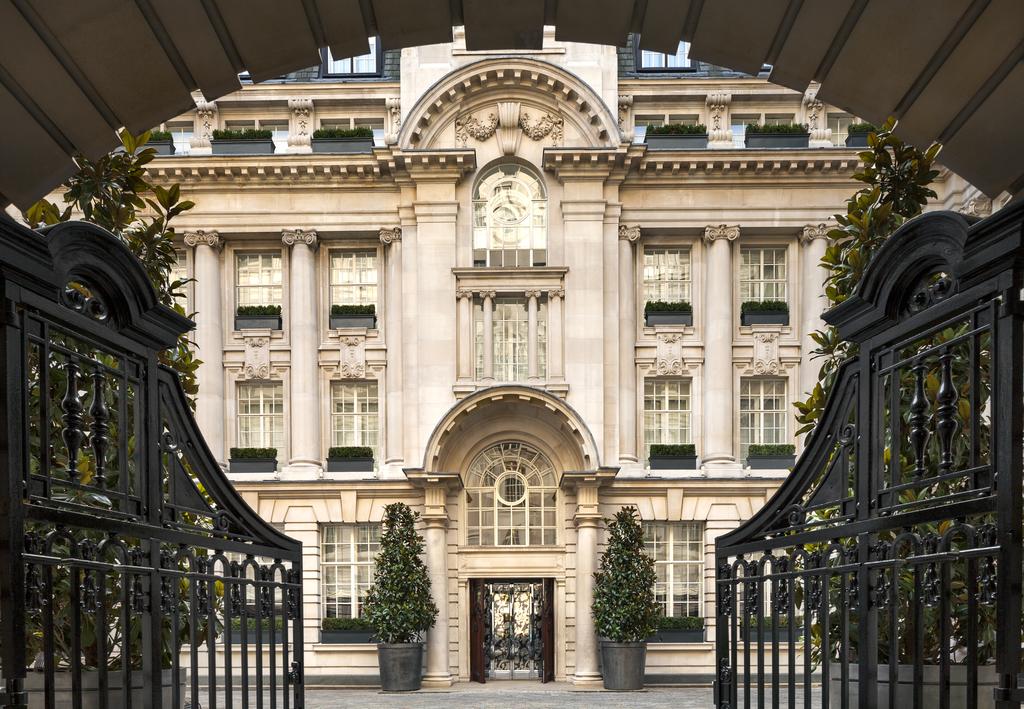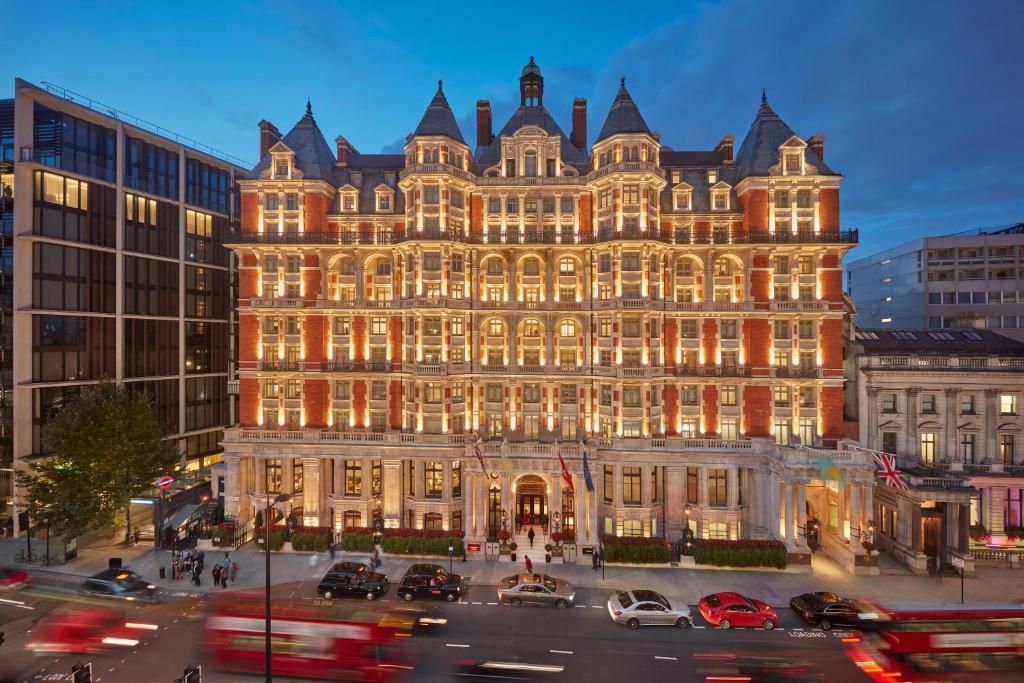 Keep Calm and Carry On Trend: Hospitality in London for 2025
Keep Calm and Carry On Trend: Hospitality in London for 2025
If there’s one constant in the ever-evolving service industry of hospitality, it’s change. In a sector where success hinges on guest experiences and satisfaction, businesses must keep pace with shifting customer expectations, technological advancements, industry disruptions, and fierce competition. Understanding the trends shaping the industry empowers London hospitality leaders to make the most strategic investments in people, technology, and processes – and come out on top.
What’s Hot in Hospitality?
Following significant financial challenges brought on by the pandemic, the global hospitality industry has been on a positive trajectory. According to the ‘Hospitality Global Market Report 2023,’ the industry saw a 7% compound annual growth rate (CAGR), reaching £4.1 trillion in 2023 from £3.8 trillion in 2022. This positive trajectory has continued into 2024, with the market expanding to an estimated £4.4 trillion, representing a healthy CAGR of approximately 6.8%. On the travel side, a 2024 survey by travel agency Skyscanner revealed that 81% of U.S. and EU consumers planned to travel the same amount or even more in 2025 compared to 2024. Whilst the USA might be an ocean away, London’s vibrant scene continues to be a magnet for travellers worldwide.
Seasoned London hospitality leaders know the importance of constantly scanning the environment for opportunities and threats. Customer preferences are evolving rapidly, and competitors, both established and new, are exploring the latest technologies, products, and even business models. To maintain positive momentum, decision-makers must grasp current and emerging trends and determine how to most effectively integrate them into their organisations.
Hospitality Trends Explained
London’s hospitality companies are generally in a better position than they were a few years ago, when they were navigating the pandemic. However, even post-crisis, their work is far from done. Hospitality businesses must continue to evolve, keeping a close eye on emerging trends and incorporating those most relevant to their current and future customers.
Some trends cut across industries. For example, higher customer expectations for seamless, digitised experiences and growing demands for environmental sustainability are hitting companies across diverse sectors, from manufacturing to healthcare to retail. The pressure to meet these changing demands hits the hospitality industry particularly hard, because the industry revolves around service and meeting or exceeding customer preferences, whether that’s offering the perfect price point and perceived value for a quick-service café or delivering a personalised, high-end experience for a luxury hotel. No technological innovation or eco-friendly offering will make any difference if customers aren’t happy.
So, while it’s crucial for London hospitality organisations to be at the forefront of emerging industry trends, business leaders must always balance that pursuit with maintaining the very human experiences of service, connection, discovery, or comfort upon which they’ve built their brands.
7 Big Hospitality Trends Shaping London and the UK in 2025
The hospitality sector in London is experiencing a period of exciting transformation. As the industry recovers from the pandemic, several key trends are emerging that will shape the guest experience for years to come. By understanding these trends, London-based hospitality businesses can gain a competitive edge and thrive in this dynamic market.

1. Tech-Savvy Travellers and Innovation
Technology continues to play a pivotal role in the hospitality industry. Here’s a look at some key tech-driven trends:
- Mobile Check-In and Digital Keys: Contactless experiences are becoming the norm, with guests increasingly expecting mobile check-in and digital key options. Integrating these features with core management software empowers hotels to offer flexible check-in methods, from scanning IDs on arrival to using mobile devices. Pioneering companies like Accor are already making waves by replacing key cards with digital keys, aiming for half their rooms to be accessible this way by 2026.
- AI and Robotics for Enhanced Service: Artificial intelligence (AI) is revolutionising the industry. Nearly half of travellers surveyed by Booking.com trust AI for trip planning, demonstrating growing comfort with this technology. Generative AI (GenAI) can act as a virtual travel guide or concierge, offering personalised recommendations for restaurants, flights, and accommodation. Hotels are embracing AI to enhance guest experiences, with 42% of travel executives acknowledging its value in personalisation. AI-powered chatbots and assistants are streamlining processes and boosting efficiency, making them attractive tools for businesses of all sizes. Robots are also making inroads, with the global market for hospitality robots expected to reach £471.77 million by 2028. These robots perform tasks like vacuuming, floor scrubbing, serving food, and even carrying luggage.
- Internet of Things (IoT) for Personalised Experiences: Hospitality firms are leveraging IoT devices for smart room technology like thermostats, lighting controls, and voice-activated assistants. Data collected from these devices can improve efficiency, minimise operational costs, streamline maintenance, and provide insights into guest preferences and behaviours.
- Virtual Reality (VR) Tours: VR tours are emerging as a powerful tool for boosting bookings. Potential guests can use their computers or mobile devices to get a virtual first-person experience of hotel rooms and amenities, allowing them to make informed decisions before booking.
2. Sustainability at the Forefront
Environmental awareness is a growing concern for travellers, putting pressure on businesses to adopt sustainable practices. Our clients are embracing this trend by doing:
- Eco-Friendly Operations: Hotels are actively implementing green initiatives, including sustainable sourcing, eco-friendly products, energy-efficient processes, water conservation measures, waste reduction, and reuse/recycling policies. The Global Business Travel Association (GBTA) reports that sustainability is a priority for 92% of its members and stakeholders. London hotels can further differentiate themselves by showcasing their commitment to the environment through transparent communication.
- Eco-Conscious Accommodation Options: Offering eco-conscious accommodations and travel options is key. Consumers are increasingly seeking these experiences as they become more aware of their travel footprint. Booking.com’s Sustainable Travel Report 2024 highlights that nine out of ten travellers actively look for sustainable options. London’s hospitality sector can capitalise on this trend by promoting eco-friendly offerings and local experiences that minimise environmental impact.
- Partnerships with Local and Sustainable Businesses: The sustainable hospitality movement extends beyond in-house practices. Partnering with sustainable businesses and supporting local producers for resources plays a crucial role. Local sourcing can significantly reduce carbon emissions associated with transportation and logistics. Additionally, hotels can collaborate with local partners to provide guests with authentic, local, and sustainable experiences, further demonstrating their commitment to the communities they operate within.
3. Prioritising Health and Wellbeing
The COVID-19 pandemic, now a thing of the past, significantly altered perceptions of health and safety, leaving a lasting impact on the sector. While some measures have relaxed, a focus on guest and staff wellbeing remains crucial:
- Enhanced Cleaning Protocols: Heightened hygiene expectations persist. While the most stringent measures may have eased, rigorous cleaning protocols reassure guests and staff. UK businesses are adopting innovative solutions such as UV-C light disinfection in public areas, self-sanitising door handles, and even robotic deliveries to minimise physical contact.
- Touchless Technologies and Air Quality: Indoor air quality is now a key concern. Hospitality companies are investing in advanced air filtration systems, automatic air purifiers, and regular maintenance of ventilation systems. Touchless technologies such as contactless check-in, mobile keys, motion-activated lighting, and automatic dispensers are also becoming more common.
- Wellness Hospitality: There’s a growing demand for “wellness hospitality”, with the Global Wellness Institute predicting the wellness travel market to reach £1 trillion by 2025. UK businesses are responding by offering health-focused amenities and services. These extend beyond traditional spa treatments to include customised wellness itineraries with fitness classes, mindfulness sessions, nutritional guidance, and other personalised services. Examples might include rooftop yoga sessions overlooking London’s skyline, guided meditation experiences in tranquil gardens, or partnerships with local nutritionists for bespoke meal plans.
4. The Rise of Personalised Experiences
Guests are increasingly seeking unique and tailored experiences, and are willing to pay for them. Here’s how our clients are capitalising on this trend:
- Data-Driven Customisation: Analysing data on customer transactions and behaviours is key to creating personalised experiences. UK hotels are using this data to offer tailored services such as early or late check-ins, personalised room amenities, and bespoke food and beverage options. For example, a hotel might offer a complimentary bottle of English sparkling wine to guests celebrating an anniversary, or provide local guidebooks and maps based on a guest’s expressed interests.
- Unique Local Experiences: Hospitality businesses are acting as gateways to authentic local experiences. Beyond traditional concierge services, they’re offering packages that include tickets to West End shows, culinary tours of Borough Market, visits to historical landmarks like the Tower of London, or even guided walks through London’s hidden alleyways. This provides guests with memorable experiences that go beyond the standard tourist trail. UK businesses are also extending these experiences with tailored on-property offerings. For instance, a hotel might host a traditional afternoon tea with locally sourced ingredients, or organise a whisky tasting featuring Scottish distilleries.
- Balancing Technology with Human Touch: Despite the rise of digital technologies, the human element remains vital. While contactless check-in, mobile keys, and AI-driven chatbots are enhancing efficiency, the personal touch of human interaction is still essential. The key for UK hospitality businesses is to strike a balance between technology and personal service, ensuring that guests feel both valued and well-cared for. This might involve training staff to use technology effectively while also maintaining strong interpersonal skills, or creating spaces within hotels that encourage social interaction and connection.
5. The Rise of “Workations” and “Bleisure” Travel
The lines between work and leisure continue to blur, driving the growth of “workations” and “bleisure” travel within the UK market:
- Impact of Remote Work: The widespread adoption of remote and hybrid working models has significantly impacted travel patterns. While business travel initially declined during the pandemic, it has rebounded strongly, with the global business travel industry expected to surpass pre-pandemic spending levels, according to the GBTA. However, the nature of business travel has evolved. With more remote workers, there’s an increased need for in-person team gatherings to foster stronger relationships, collaboration, and organisational culture. UK hotels are responding by investing in co-working spaces and providing enhanced business facilities. For example, some hotel chains offer dedicated workspaces with high-speed Wi-Fi, spacious desks, and ergonomic chairs.
- Catering to “Bleisure” Travellers: “Bleisure” travel – combining business trips with leisure – is a rapidly expanding market. UK hospitality businesses are well-positioned to cater to these travellers by offering flexible check-in/check-out times, flexible housekeeping options, in-room fitness facilities, and curated leisure activities. For example, a hotel in London might offer a “bleisure” package that includes discounted tickets to a West End show or a guided tour of a local museum after a business conference.
- The “Workation” Trend: “Workations,” where individuals work remotely from a holiday destination, are also gaining popularity. UK destinations, from bustling London to the scenic Scottish Highlands, are attracting remote workers seeking a change of scenery. Hospitality businesses are responding by offering “workation” packages that combine accommodation with access to co-working spaces, reliable Wi-Fi, and recreational activities.
6. Innovative Business Models
Disruption and innovation are reshaping the hospitality landscape, with new business models emerging:
- Subscription-Based Services: Inspired by successful subscription models in other industries, some UK hospitality companies are introducing travel subscriptions. These aim to simplify travel planning by offering savings, curated experiences, or both. While the concept is still relatively new to the UK market, it offers the potential for recurring revenue and customer loyalty. However, businesses must carefully consider pricing and value to attract customers in a competitive market.
- Boutique Hotels and Unique Lodging: Boutique hotels continue to thrive, offering travellers a more intimate and distinctive experience compared to large chain hotels. These smaller properties, often with fewer than 100 rooms, boast unique designs, local character, and personalised service. UK cities and rural areas offer a wealth of boutique hotels, from stylish London townhouses to charming country inns. Beyond boutique hotels, unique lodging experiences are also gaining traction, including stays in historic castles, vineyard retreats, converted barns, and glamping sites. These one-of-a-kind accommodations appeal to travellers seeking memorable and unconventional experiences. However, these niche offerings may not appeal to all travellers and require careful marketing to reach the target audience.
- Challenges and Opportunities: While these new business models offer exciting opportunities, they also present challenges. Subscription services require careful pricing and value proposition design, while unique lodging experiences may face operational complexities and limited scalability. However, by carefully considering the market demand and adapting their offerings, UK hospitality businesses can capitalise on these innovative trends and attract new customer segments.
7. Addressing Staffing Challenges and Investing in Human Capital
The UK hospitality sector, particularly in London, faces ongoing challenges in attracting and retaining skilled staff. This necessitates innovative approaches to recruitment, workforce management, and employee wellbeing:
- Workforce Management Strategies: Many hospitality businesses rely on outdated workforce management practices, leading to inefficiencies, particularly in the face of staff shortages. Embracing data analytics and intelligent automation is crucial for optimising workforce management. Implementing tools with automated scheduling and labour optimisation enables businesses to maximise their existing workforce, effectively match staffing levels to demand, improve staff allocation, reduce overhead costs, and ensure compliance with UK employment regulations.
- The Role of Automation: Beyond workforce management, automation can significantly enhance efficiency in other areas. Automating routine tasks such as booking management and front-desk services frees up staff to focus on higher-value activities, such as enhancing the guest experience. This not only improves productivity but also creates more engaging and rewarding roles for employees.
- Prioritising Employee Wellbeing: Employee wellbeing is no longer a perk but a necessity. The hospitality sector, with its often demanding hours and irregular shift patterns, needs to prioritise employee wellbeing to attract and retain talent. UK businesses are increasingly adopting comprehensive wellness programmes that encompass mental health support, fitness initiatives, and physical health programmes. Investing in employee wellbeing improves morale, job satisfaction, and staff retention, ultimately benefiting the business’s bottom line.
- Investing in Training and Development: The customer experience is paramount in hospitality, making ongoing customer service training essential. Programmes should focus on effective communication, handling complaints, responding to feedback, and other customer service skills. Training can be delivered through various methods, including workshops, case studies, and role-playing. As technology continues to transform the industry, it’s vital to provide staff with the necessary training to effectively use new tools, such as property management software, point-of-sale systems, and social media platforms. This ensures that staff can leverage technology to enhance the guest experience and streamline operations.

Adapting to 2025’s Hospitality Trends in London
To thrive in London’s dynamic hospitality scene in 2025, effective financial management is crucial. Accountant Jobs London specialises in connecting London hospitality businesses with top finance talent. We understand the sector’s unique financial landscape and have a proven track record of placing qualified accountants, finance managers, and other finance professionals across the UK. Whether you need a Finance Director, Financial Controller, Finance Manager, Management Accountant, or Revenue Manager, we offer tailored recruitment solutions to meet your specific needs.
Looking to build your London finance team for 2025? Contact our director Edward today to discuss your finance recruitment requirements and discover how we can help you secure the best talent to drive your business forward.
[email protected]
07988 646 671
 Keep Calm and Carry On Trend: Hospitality in London for 2025
Keep Calm and Carry On Trend: Hospitality in London for 2025
